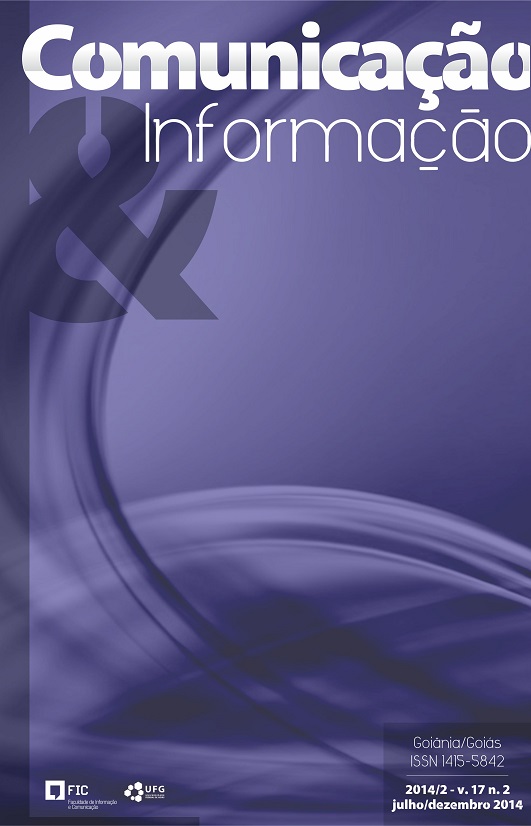User’s perception about the qualitative analyses software webQDA
DOI:
https://doi.org/10.5216/33270Keywords:
Component. Formatting. Style. Styling. Headings.Abstract
The nature of quantitative research reveals is limited to answering some of the questions the human and social sciences. On the other hand, researchers increasingly recognize that qualitative research is of crucial importance to answer research questions that we would like to deepen. The quality and number of works in this area are considerable, but there are many challenges to face. One of the challenges that we discuss in this paper is the level of training of new researchers toward combination of analysis techniques and software available to enhance this same analysis. In this work, we present the perceptions of researchers on the use of webQDA software in the context of advanced training. Beyond the participants’ profile, we also present an evaluation of the training program itself. The Web Qualitative Data Analysis (webQDA) is software to support qualitative analysis that can be accessed through the internet, providing a secure collaborative work environment (www.webqda.com). We use a qualitative analysis of open-end questions using the own webQDA software, which were collected through a questionnaire. The results point to a positive perception of the trainees on the use of webQDA and training itself. However, technical limitations are indicated that in the initial version of the system were not yet available, such as: export tables to Excel, print and export text data and work offline. As for training, suggest that is necessary more time to the Questioning dimension and triangulation of data with support of webQDA. Was possible seen also that the use of software is a driving force for new understandings and insights about the process of qualitative analysis of data.
Downloads
References
CARRERA-FERNÁNDEZ, María Jesús; GUÀRDIA-OLMOS, Joan; PERÓ-CEBOLLERO, Maribel. Qualitative methods of data analysis in psychology: an analysis of the literature. Qualitative Research, Barcelona, v. 14, n. 1, p. 20-36, nov. 2012.
INTERNATIONAL ORGANIZATION FOR STANDARDIZATION. ISO/IEC9126. Avaliação de Qualidade de Produtos de Software . Geneva: International Standards Organisation. [s.i.], 1999.
LINDA, S. G.;KRISTI, J.;GREGORIO, S. di. Tools for analyzing qualitative data: the history and relevance of qualitative data analysis software. In.: SPECTOR, J. M. et al (Eds.), Handbook of Research on Educational Communications and Technology. 4. ed. London: Springer, 2014. p. 221-236.
NERI DE SOUZA, D.;COSTA, A. P.; NERI DE SOUZA, F. Avaliação da Perceção dos Formandos sobre o Software WebQDA. In: Actas...II Congresso Internacional TIC E Educação (ticEDUCA2012). Lisboa: ticEDUCA, 2012a.
NERI DE SOUZA, D.; COSTA, A. P.; NERI DE SOUZA, F. Avaliação da Perceção dos Formandos sobre o Software WebQDA. In:Actas... II Congresso Internacional TIC e Educação (ticEDUCA2012). Lisboa, 2012b. p. 365–376.
N
ERI DE SOUZA, F.;COSTA, António Pedro; MOREIRA, A. Questionamento no Processo de Análise de Dados Qualitativos com apoio do software webQDA.EDUSER: Revista de Educação, Inovação Em Educação Com TIC, v.3, n. 1, p. 19–30, 2011.
NERI DE SOUZA, F.;COSTA, A. P.;MOREIRA, A. WebQDA: Software de Apoio à Análise Qualitativa. In.:ROCHA, A. (Ed.). Conferência Ibérica de Sistemas e Tecnologias de Informação, 5CISTI’2010. Santiago de Compostela, Espanha: Universidade de Santiago de Compostela, 2010.
NERI DE SOUZA, F.; COSTA, A. P.; MOREIRA, A. WebQDA: manual do Utilizador. 2. ed..Portugal: Universidade de Aveiro, 2013.
DEJONG, Menno; SCHELLENS, Peter Jan. Reader-Focused Text Evaluation: An Overview of Goals and Methods. Journal Of Business And Technical Communication,[s.i.], v. 11, n. 4, p.402-432, out. 1997.
Published
How to Cite
Issue
Section
License
Os autores dos trabalhos publicados na revista Comunicação e Informação retêm os direitos autorais sem restrições e concedem à revista o direito de primeira publicação, com o trabalho simultâneo licenciado sob a Licença Creative Commons Atribuição-NãoComercial que permite o compartilhamento do trabalho para fins não comerciais com reconhecimento da autoria e o privilégio de publicação primeiramente por esta revista. Caso o texto venha a ser publicado posteriormente em outro veículo, solicita-se aos autores informar que o mesmo foi originalmente publicado como artigo na revista Perspectiva, bem como citar as referências bibliográficas completas dessa publicação.
Os direitos autorais dos artigos pertencem aos autores e o conteúdo dos artigos assinados é de responsabilidade exclusiva dos autores.
A revista se reserva o direito de efetuar, nos originais, alterações de ordem normativa, ortográfica e gramatical, com o intuito de manter o padrão culto da língua, respeitando, porém, o estilo dos autores.
A revista também se reserva o direito de traduzir o artigo, no todo ou em parte, para o inglês ou para o português, dependendo do idioma em que o artigo tenha sido escrito originalmente.



